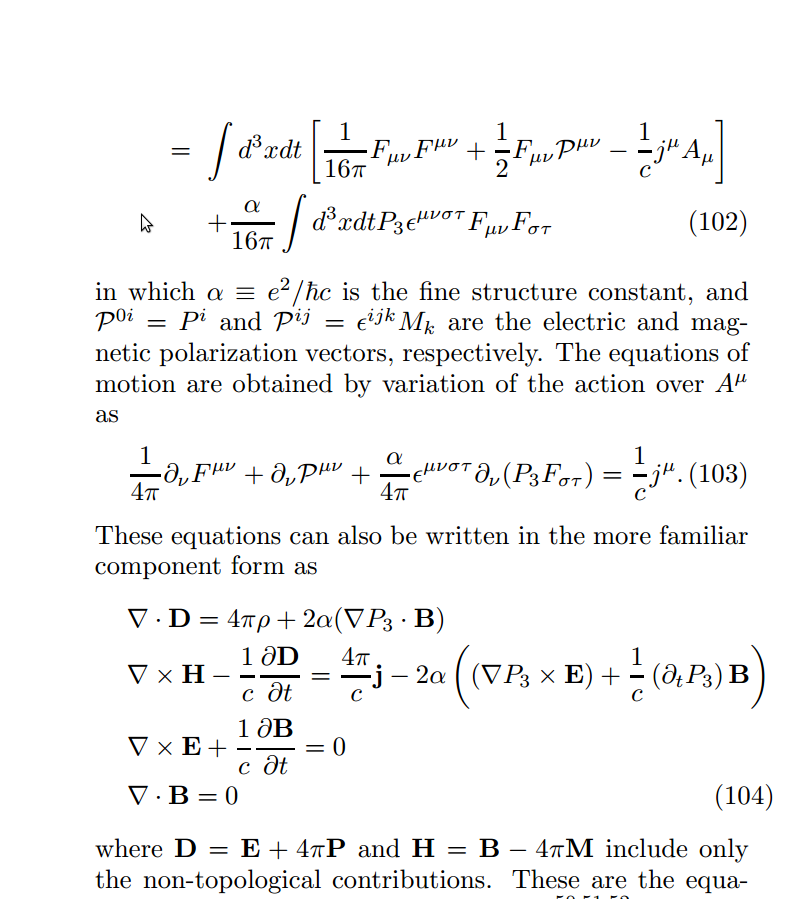Effective field theory of 3d topological insulators (TI) predict some novel electromagnetic effects. Unfortunately it require a gapped surface which is hard to achieve experimentally. Then I have two questions.
1.
Is $\nabla P_3=0$ for a bare TI (without magnetic coating), and hence it behaves like a trivial insulator?
2.
Why not put the bare TI inside a uniform magnetic field which, of course, opens a gap on the surface? Can I still use the topological field theory without worrying about the bulk?
I am afraid that the bulk is no longer "topological" since time-reversal symmetry is broken. But the bulk band gap is robust under perturbation. As long as the gap is not closed, it remains a TI.
Take a look at the article topological quantization in unit of $\alpha$, in which a $B$ field is applied instead of magnetic coating. I got more confused after reading this paper.
The $P_3$ appeared in my question comes from Qi's paper topological field theory of time-reversal insulators.

